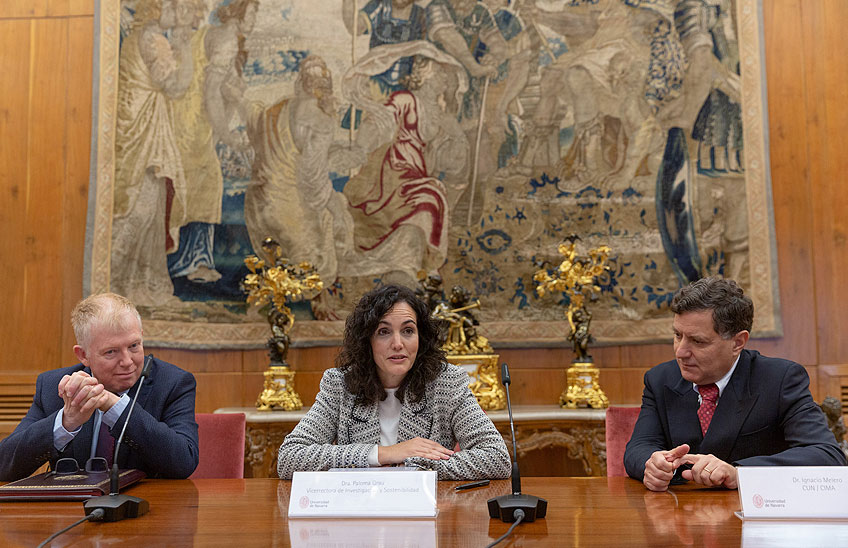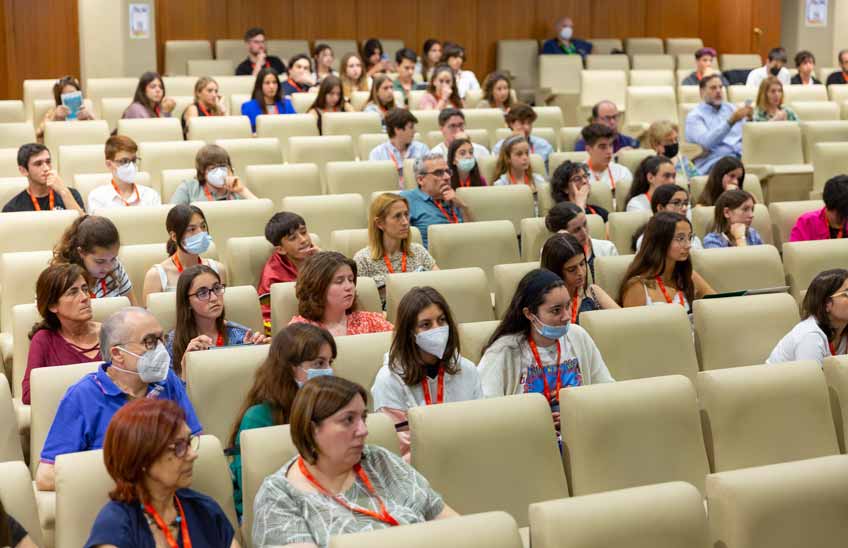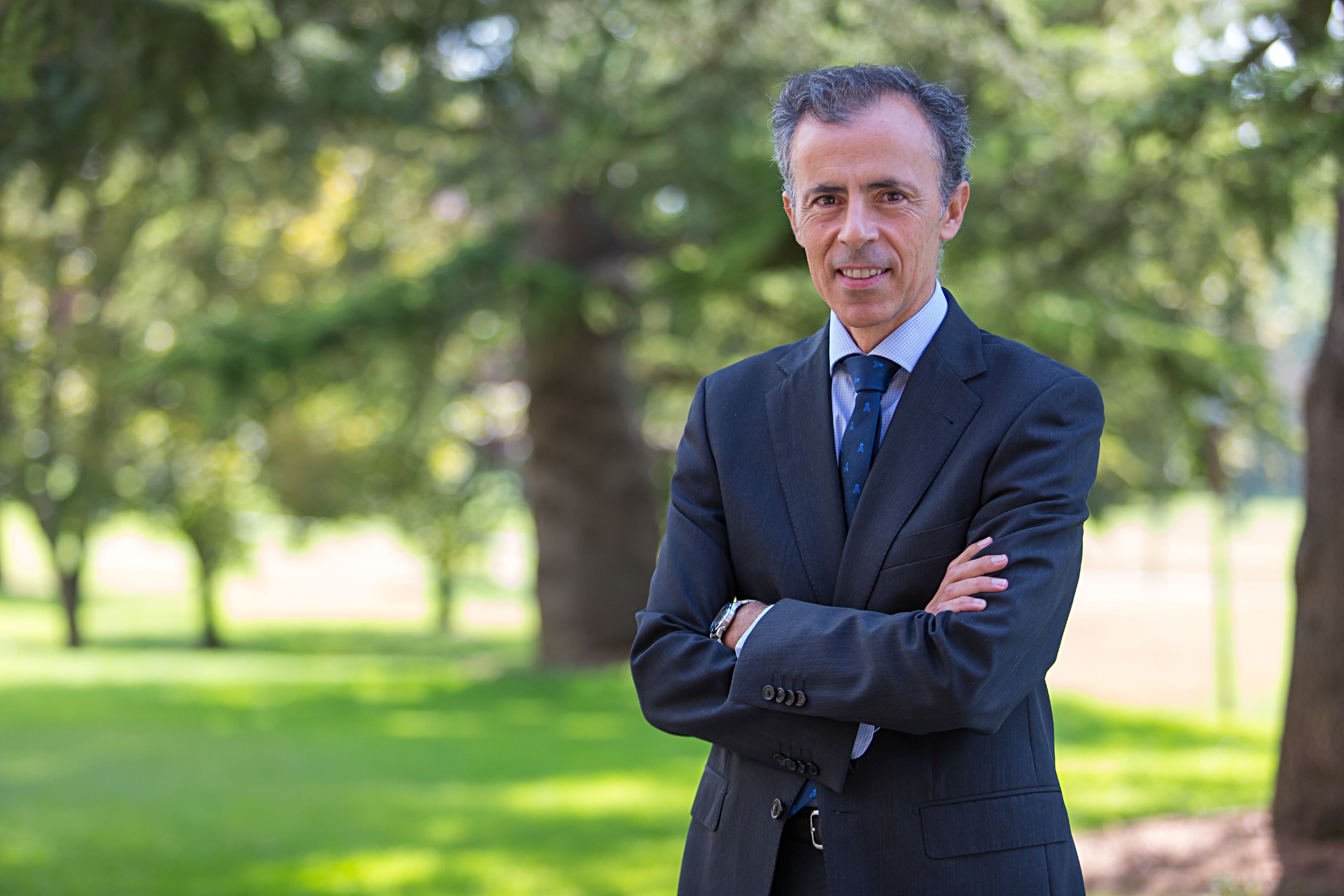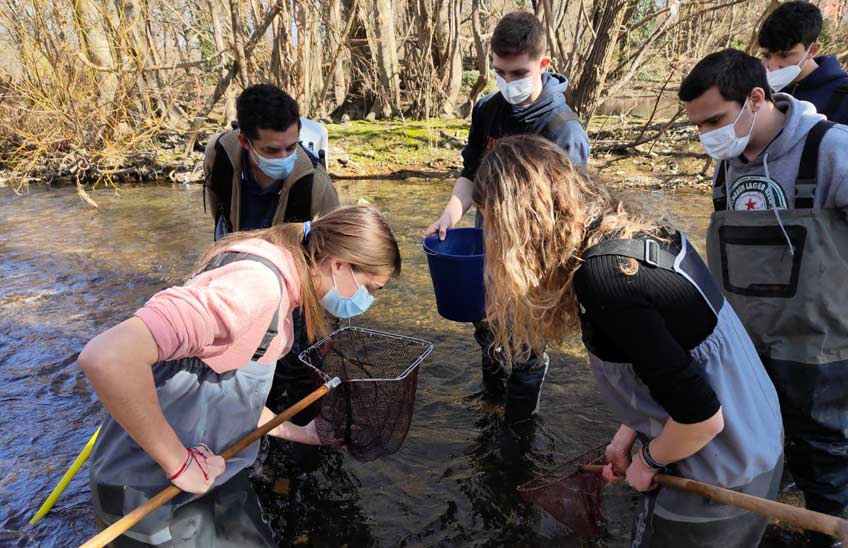Friendships, emotional dependence and toxic relationships, topic of a roundtable organized at the University.
The activity is part of the project Health and Wellness Strategy 2025.
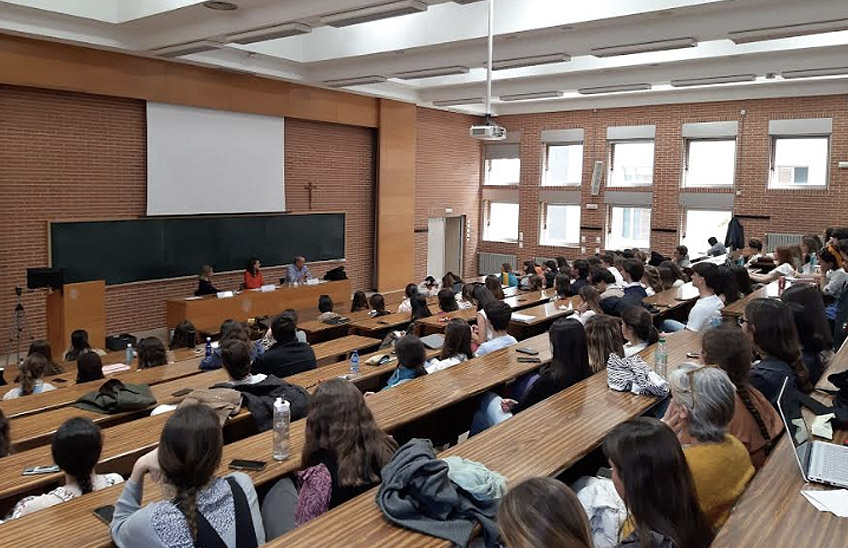
PhotoCedit/
03 | 04 | 2023
On March 28th took place a roundtable addressed to students and professors on "Friendships, emotional dependence and toxic relationships". In the activity, framed in the project Health and Wellbeing of the Strategy 2025 of the University of Navarra, participated as speakers Professor Jokin de Irala, Full Professor of the School of Medicine, and Dr. Raquel Martín, psychologist, family therapist and professor of the School of Education and Psychology. The round table was moderated by Carolina Lupo, researcher of group "Affectivity and sexuality" of the Institute for Culture and Society.
Carolina Lupo introduced the session by commenting that, at present, "we see a reality among young people that challenges us. She also helped the participants to reflect on the fact that, in the field of human relationships, there is a kind of existential paradox: "Many desperately seek to "tie themselves" to others, but, at the same time, they need this bond to remain "loose", so that they can "untie themselves" at the first discomfort. Added to this is a growing experience of loneliness (motivated by multiple factors), which sometimes leads people to seek to be attached at any cost," he said.
For her part, Dr. Raquel Martín explained that a person with emotional dependence tends to feel valuable according to the view he or she receives from others. "This can occur both in a bond of friendship and as a couple," said Dr. Jokin de Irala. The opinion that the other person has of her, the demonstrations of affection, the fact that she is aware of every step she takes, etc., makes her feel secure, he explained. "If the security and worthiness staff is not given to her by another, her whole affective world falters."
As Dr. Martin pointed out, the causes are usually diverse and complex. "There is no single reason", although, as she explained, underlying causes include leave self-esteem, feelings of insecurity, development of an insecure attachment in vital stages of their history staff, deficiency of social skills, deep feelings of loneliness, among others. He also pointed out that we cannot forget the influence of some social networks, which further aggravate this complex scenario.
As explained in the session, identifying when a relationship is dependent is a crucial task, as it is the necessary step to get out of it, or help others to do so. Through social networks, Dr. de Irala asked the attendees what they consider to be the signs that could indicate the existence of emotional dependence in a relationship. Some of the responses he received were the following: that relationship isolates us from other affective bonds (family, friends) or interferes negatively in our tasks (study, work) or leisure activities (sports, outings); it is a relationship that claims exclusivity or limits us when it comes to opening up to others (or feels bad or complains when this happens); one lives in the need to be with the other all the time, does not tolerate their absence or silences (if they take a long time to answer a WhatsApp, for example); a kind of control is exercised over the other person, not necessarily explicitly or aggressively, but sometimes it takes the form of a certain victimhood, "I cannot be without you"; the other is needed (or their approval) to make any decision subject .
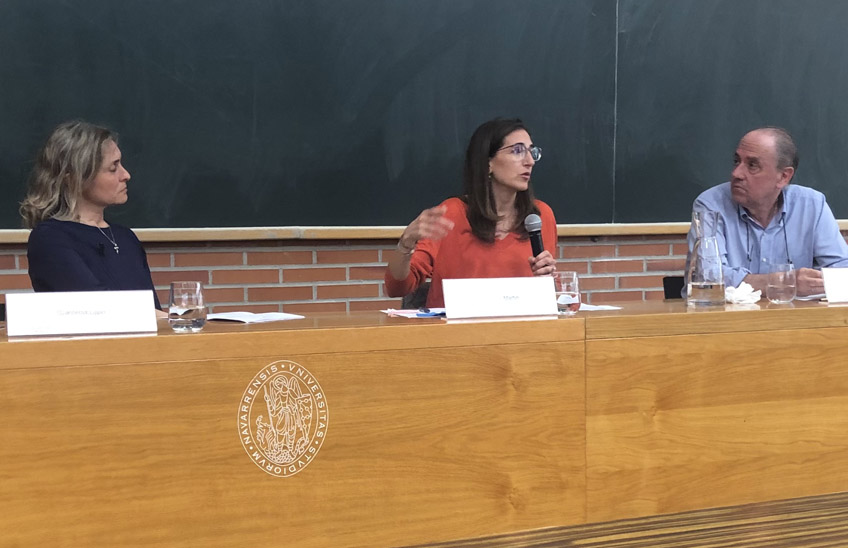
Dr. Martin corroborated the presence of these signs from a clinical perspective. In addition, she indicated that we can also detect some quite clear signs: a dependent relationship does not allow you to grow financial aid , you do not live the relationship with serenity, but as a constant roller coaster (depending on your actions on how the other will react), you are becoming someone you are not or who you do not want to be. This emotional dependence, which always has a negative impact on the person in the long term deadline, can also have a more harmful impact if it takes on toxic overtones. He commented that a toxic relationship is the most extreme Degree of an emotional dependence, which would lead us to make decisions whose repercussions would be dangerous from the very first moment. "We would be talking about relationships that involve behaviors that directly undermine the moral or physical integrity of the person: for example, a feeling of fear of physical harm (even if it does not happen), threats, control of intimacy or risky behavior," he said.
Dr. de Irala commented that there is also a fairly frequent profile among many young people who, in themselves, are very generous and are always willing to help others. "It is what we call the "NGO syndrome". In these cases, the need for dependency would be reflected in the fact that they constantly need someone who needs them. Almost without realizing it, they become a kind of "savior" for others, often to the detriment of their growth staff".
The speakers encouraged us to ask ourselves whether healthy dependence is possible, for which it is necessary to reflect on the use (and often misuse) of language in our society. Independence, freedom, self-sufficiency, limits, ties, autonomy... can be mixed and confused. Thus, they affirmed that there does exist a healthy dependence, or free dependence, that is to say, that bond that one chooses to create is a relationship of friendship or courtship in which one can grow as a we, it allows an openness to others with respect and freedom. To conclude, Carolina Lupo emphasized that we are by nature relational people: "We all seek to love and be loved, the bond of dependence is the most authentically human. As long as, in that decision taken freely, we choose to love this or that person, because we want to love him or her, because we choose him or her and grow with him or her, not because that person becomes indispensable for my happiness and to give value to who I am. Whoever loves me freely, brings out the best in me".

